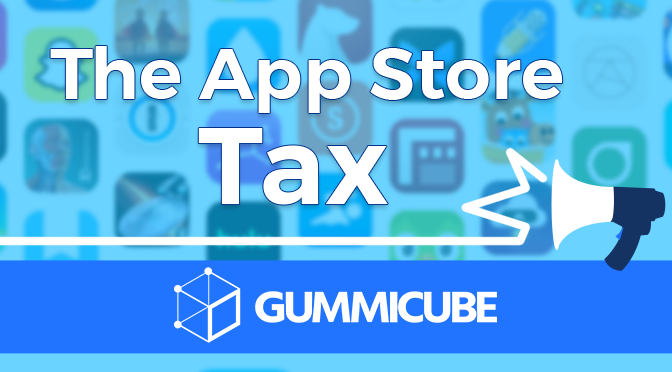
Apple Search Ads Rebrands as Apple Ads
Posted on April 18th, 2025
Apple Ads is the new name for Apple Search Ads. Learn what this rebrand could mean for your app's visibility and ASO.

Over the past several years, Apple has been dealing with a heated debate over its 30% App Store Tax on all in-app purchases and sales.
While the 30% commission on its own may seem like the an inconvenient but inescapable “price for admission”- especially after Apple lowered it to 15% for small businesses late last year- the fact that Apple’s App Store is the only avenue for publicly distributing iOS apps has shifted sentiment for some from undesirable to unreasonable- potentially unlawful.
The frustration around this 30% commission has manifested in many ways, from cathartic venting of indie developers on private forums to intense legal battles elicited by industry titans in worldwide courtrooms.
In February, the North Dakota Senate voted against a measure that would impact Apple’s 15%-30% cut by making it unlawful for Apple (or Google, or other device makers distributing third-party content on their “general purpose hardware” like a smartphone) to require developers to use their payment systems or app stores.
But last week, a similar bill passed in the Arizona House of Representatives with a vote of 31-29. While this bill does not restrict Apple or Google from keeping themselves as the primary distributors of apps on their platforms, it does prohibit them from forcing developers to use their first-party payment systems.
This bill isn’t “the end of the App Store Tax” (sorry Spotify, Epic and everyone else) as it only covers Arizona-based users. It must still pass through the Arizona Senate to come into law, and even then could be vetoed by Arizona’s Governer Doug Ducey.
This label may be unfairly pushed entirely to Apple and Google, as they are not the only distributors of digital content that charge a commission. Amazon and Samsung charge the same 30% rate on their app stores. Even Nintendo, PlayStation, Xbox and Steam mostly charge 30% to allow publishers to have their games in their marketplaces. This varies from platform to platform, and can decrease based on the amount of sales made, content type or length of time a user has subscribed. But the same is true for Apple, where small businesses and subscriptions held for over a year are charged 15%.
In the past, Apple has argued just this point- that a 30% commission is not uncommon in its specific industry or adjacent industries. This commission also in part helps power Apple’s developer services sector and the App Store itself- so it could be that the “App Store Tax” is not really that bad of a mischaracterization.
In a separate ongoing antitrust battle in the UK, an Apple spokesperson called the iOS App Store “an engine of success for app developers, in part because of the rigorous standards we have in place - applied fairly and equally to all developers - to protect customers from malware and to prevent rampant data collection without their consent”.
The App Store tax- and the ever-growing strict content policies on the only platform where iOS apps can be distributed- may seem unwarranted to many developers. But Apple would argue they are not without industry precedent and not without purpose. The years of legal disputes around these subjects, both now and yet to come, stand as proof that these issues are not as simple as some of the casual games on the platform.
While Arizona’s House ruling still has a way to go before it comes into law in a single state, it may well be a catalyst to wide-reaching ramifications across the App Store industry- for Apple, for Google and for any other platform distributing third party content. Implications of the bill passing range from developers having more revenue for their games, to changes in how much Apple has available for App Store maintenance- even to which state will set up shop in.
Between the Arizona ruling, Apple’s ongoing antitrust disputes and the sweeping data transparency changes Apple continues to roll out, 2021 will have no shortage of pivotal moments in the evolution of the App Store ecosystem.

Apple Ads is the new name for Apple Search Ads. Learn what this rebrand could mean for your app's visibility and ASO.

Apple now requires all iOS apps to use Xcode 15 and iOS 17 SDK. Learn what this means for developers—and how it impacts your ASO strategy.

Google Play is enhancing security, fraud prevention, and policy support in 2025. Learn how these updates help developers build safer, more trusted apps.